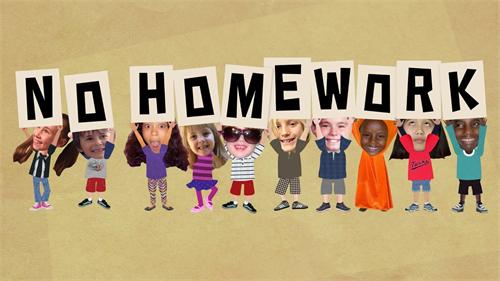Digital Nomad Families: Managing Finances & Schooling Abroad

As the global digital economy rapidly evolves, digital nomads have emerged as a vital new segment of the modern workforce. Today, more than 50 countries and regions offer specialized visas designed for remote workers. What began as an individual lifestyle choice is now gradually becoming a global social phenomenon.
With the growing diversity of this group, the concept of the “digital nomad family” has quietly taken shape. Especially in the aftermath of the pandemic, technological advancements have further enabled this lifestyle. People no longer need to live where they work—instead, they work where they want to live. Many companies now allow remote work, and the flexibility of distance learning has made education more adaptable. All of this has paved the way for more families to adopt a lifestyle that blends travel with daily life.
A digital nomad family, by definition, integrates the “work while you travel” lifestyle into the structure of family life. The widespread use of remote work tools and the push from the pandemic have encouraged more parents to embrace the idea that they can live where they thrive, not just where they are employed. With no need to be tied to traditional offices or school systems, families are discovering they can work and educate their children on the move—exploring the world together.
The rise of travel-based learning further supports this trend. Many parents believe that the experiences gained on the road—independence, adaptability, interpersonal skills—can be more valuable than textbook knowledge. In the UK, a new profession has even emerged: the "travel teacher," who accompanies nomadic families and supports children's academic and extracurricular learning. This type of education, grounded in real-world experiences, encourages children to think critically about the world and fosters a lifelong love of learning.
Financial Management: The Price of Freedom and How to Cope
“Geographical freedom” is one of the most attractive aspects of the digital nomad lifestyle—but this freedom often comes with income instability and hidden living costs. Project-based work means inconsistent income. On top of that, short-term housing premiums, frequent relocation costs, cross-border transaction fees (5–10%), and the high price of international health insurance can make life on the road surprisingly expensive. Many nomads joke, “We’re modern nomads, but the price of our tents is closer to a five-star hotel.”
To manage this financial volatility, planning is essential. One practical and popular approach is the three-account system:
- Daily Account: For everyday expenses
- Tax Account: For setting aside cross-border tax obligations
- Investment Account: For building long-term assets and passive income
It’s also advisable to maintain at least a six-month emergency fund. For healthcare, consider international providers like SafetyWing, or join digital nomad communities that offer group insurance plans, which can reduce annual costs by over 30%.
Joining a reliable digital nomad community is another crucial step. These groups provide not only legal and practical information but also job leads, housing tips, and peer support—making the journey much less lonely, especially for beginners.
Social Disconnect and the Challenge of Constant Movement
While frequently changing locations can be exciting, it also means repeatedly breaking and rebuilding social ties. Many digital nomads describe themselves as “perpetual outsiders”—never fully integrating into local communities and gradually feeling disconnected from their home cultures. This transient lifestyle creates institutional challenges as well. Most countries’ social security systems require continuous residency, leaving digital nomads without access to essential protections like pensions or unemployment benefits.
Education Abroad: Freedom with Uncertainty
For families with children, education is a top concern. Dr Jody LeVos, a child development expert, warns that a lack of routine can be detrimental, especially for younger children who crave familiarity. Constant shifts in time zones, environments, and social circles can pose real challenges.
When choosing a destination, families should prioritize child-friendly communities that organize regular parent-child activities. These help kids form social bonds and a sense of belonging, even in temporary homes.
Several educational paths are available, each with its pros and cons:
- Local Public Schools: Low cost and fast language immersion, but cultural adaptation may be tough.
- International Schools: High-quality and globally recognized curricula, but expensive.
- Homeschooling/Worldschooling: Highly flexible and ideal for mobile families, but places significant teaching pressure on parents.
If the family plans for the child to pursue higher education in Europe or North America, the International Baccalaureate (IB) is often a strong choice due to its global recognition and focus on critical thinking and well-rounded development. For those aiming to return to their home country or apply to Commonwealth universities, A-Levels may be a better fit. For U.S. college-bound students, a combination of AP courses and SAT/ACT scores is the standard route.
For children interested in fields like art, design, computer science, or business, it’s helpful to build up relevant portfolios or participate in international competitions during secondary school. In fact, the digital nomad lifestyle itself can become a unique asset—offering experiences in cross-cultural exchange, international volunteering, and remote collaboration—as long as these are well-documented and presented in a structured way.
The rise of digital nomad families reflects a broader transformation in technology, social norms, and family values. This lifestyle breaks down the traditional boundaries between work and home, education and exploration. It challenges the old paradigms of financial planning and schooling—but it also offers extraordinary opportunities for those willing to embrace the adventure.
Ultimately, this way of life teaches children about the diversity of the world and helps adults rediscover their own values through constant choice and adaptation. As long as we are prepared for the challenges, the pursuit of freedom remains deeply worthwhile.
Recommended for you:







